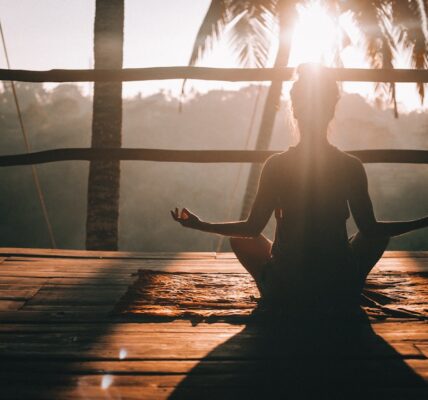Before embarking on any journey, especially to international destinations, it is crucial to understand the health requirements that may be in place. Vaccinations are often a prerequisite for entry into certain countries, particularly those where diseases such as yellow fever, hepatitis A, or typhoid fever are prevalent. Travelers should consult with healthcare professionals or travel clinics well in advance of their trip to ensure they receive the necessary vaccinations.
For instance, many countries in Africa and South America require proof of yellow fever vaccination for entry, especially if travelers are coming from regions where the disease is endemic. This not only protects the individual but also helps prevent the spread of infectious diseases. In addition to vaccinations, travelers should also be aware of any health advisories or recommendations related to their destination.
The Centers for Disease Control and Prevention (CDC) and the World Health Organization (WHO) provide up-to-date information on health risks associated with specific regions. For example, during outbreaks of diseases like COVID-19, countries may impose additional health requirements such as proof of negative test results or vaccination certificates. It is advisable to keep abreast of these developments as they can change rapidly, impacting travel plans.
Furthermore, carrying a personal health kit that includes basic medications, hand sanitizers, and first-aid supplies can be beneficial in managing minor health issues while abroad.
Understanding Local Regulations: Entry Restrictions and Quarantine Protocols
Travelers must familiarize themselves with the entry restrictions that may be in place at their destination. These regulations can vary significantly from one country to another and can change frequently based on the global health landscape. For instance, some countries may require travelers to present a negative COVID-19 test taken within a specific timeframe before departure, while others might mandate quarantine upon arrival.
Understanding these requirements is essential to avoid unexpected complications at border control. Quarantine protocols can also differ widely; some nations may have designated facilities for travelers who need to isolate, while others might allow home quarantine under certain conditions. For example, upon entering New Zealand, travelers were initially required to undergo a 14-day managed isolation period in government-approved facilities.
This was a significant adjustment for many travelers who had to plan their itineraries around these restrictions. It is advisable for travelers to check official government websites or consult with their embassies for the most accurate and current information regarding entry restrictions and quarantine measures.
Navigating Transportation: Changes in Public and Private Transit

The landscape of transportation has evolved significantly in response to global health concerns. Public transit systems have implemented various safety measures to protect passengers and staff alike. For instance, many cities have increased the frequency of cleaning and sanitization of buses, trains, and stations.
Additionally, some transit authorities have introduced contactless payment options to minimize physical interactions. Travelers should familiarize themselves with the local public transportation system before arriving, as this can save time and reduce stress upon arrival. Private transportation options have also adapted to the new normal.
Ride-sharing services have implemented safety protocols such as mandatory mask-wearing for drivers and passengers, as well as enhanced vehicle cleaning procedures. In some regions, travelers may find that car rental companies are offering contactless pick-up and drop-off services to limit person-to-person contact. Understanding these changes can help travelers make informed decisions about how best to navigate their destination while ensuring their safety and comfort.
Accommodation Considerations: Hostel and Camping Options
| Accommodation Type | Cost | Facilities | Location |
|---|---|---|---|
| Hostel | Low to moderate | Dormitory or private rooms, shared bathrooms, common areas | Urban areas, close to public transportation |
| Camping | Low | Campsites, access to nature, limited facilities | Rural or natural areas |
When it comes to accommodation, travelers have a variety of options ranging from hotels to hostels and camping sites. Hostels have traditionally been popular among budget travelers due to their affordability and social atmosphere. However, in light of recent health concerns, many hostels have adopted new cleaning protocols and reduced capacity to ensure guest safety.
For example, some hostels now offer private rooms alongside dormitory-style accommodations, allowing guests to choose their level of interaction with others. Camping has also seen a resurgence as travelers seek outdoor experiences that allow for social distancing. National parks and campgrounds often provide a more isolated environment compared to urban accommodations.
Many parks have implemented reservation systems to manage visitor numbers and ensure that facilities are not overcrowded. Travelers should research camping regulations at their chosen destination, including fire restrictions and wildlife safety guidelines. Whether opting for a hostel or a campsite, it is essential to prioritize safety and hygiene practices during the stay.
Dining and Food Safety: Restaurant Protocols and Local Cuisine
Dining out is an integral part of experiencing a new culture; however, it is essential to be mindful of food safety practices while traveling. Restaurants around the world have adapted their operations in response to health guidelines. Many establishments now offer outdoor seating options to facilitate social distancing, while others have implemented strict hygiene protocols in their kitchens and dining areas.
For instance, menus may be provided digitally via QR codes to minimize contact with physical items. When exploring local cuisine, travelers should also be aware of food safety standards specific to their destination. In some regions, street food is a popular choice but may come with varying levels of hygiene practices.
It is advisable to observe the cleanliness of food stalls and choose vendors that appear busy, as high turnover often indicates fresher ingredients. Additionally, drinking bottled water instead of tap water in certain areas can help prevent gastrointestinal issues that may arise from consuming contaminated water.
Cultural Sensitivity: Adapting to New Social Norms and Customs

Cultural sensitivity is paramount when traveling abroad, as customs and social norms can differ significantly from one country to another. Understanding local etiquette can enhance interactions with residents and foster positive experiences. For example, in some cultures, greeting customs may involve bowing or cheek kissing rather than a handshake.
Being aware of these nuances can help avoid unintentional offenses. Moreover, dress codes can vary widely depending on the region and context. In many conservative countries, modest clothing is expected in public spaces or religious sites.
Travelers should research appropriate attire before visiting such locations to show respect for local customs. Engaging with locals in a respectful manner not only enriches the travel experience but also promotes cultural exchange and understanding.
Outdoor Activities: Exploring Nature and National Parks
Outdoor activities offer an excellent way to experience the natural beauty of a destination while maintaining social distance from others. National parks are often at the forefront of outdoor exploration, providing opportunities for hiking, wildlife viewing, and photography. Many parks have implemented measures such as timed entry systems or limited visitor numbers to protect both the environment and visitors’ safety.
When planning outdoor activities, it is essential to consider the level of difficulty associated with various trails or excursions. Some parks offer guided tours that provide insights into local flora and fauna while ensuring safety through experienced leadership. Additionally, travelers should be prepared for changing weather conditions by packing appropriate gear and supplies for their adventures.
Engaging with nature not only promotes physical well-being but also offers a chance for reflection and connection with the environment.
Emergency Preparedness: Knowing Where to Seek Help and Resources
Being prepared for emergencies while traveling is crucial for ensuring personal safety and well-being. Familiarizing oneself with local emergency services can provide peace of mind during a trip. Travelers should know how to contact local authorities or medical services in case of an emergency; this often involves memorizing important phone numbers or saving them in a mobile device.
Additionally, having access to resources such as travel insurance can be invaluable in case of unexpected events like illness or trip cancellations. Many insurance policies offer coverage for medical emergencies abroad, which can alleviate financial burdens associated with healthcare costs in foreign countries. It is also wise to keep copies of important documents such as passports and insurance information stored securely both physically and digitally.
Being proactive about emergency preparedness allows travelers to navigate unforeseen circumstances with greater confidence and resilience.
FAQs
What are the current rules and regulations for backpacking in post-pandemic countries?
Each country has its own set of rules and regulations for travelers, including requirements for testing, quarantine, and vaccination. It is important to research and stay updated on the specific guidelines for each country you plan to visit.
What safety measures should backpackers take when traveling in post-pandemic countries?
Backpackers should continue to follow basic safety measures such as wearing masks, practicing good hand hygiene, and maintaining social distancing. It is also important to stay informed about the current COVID-19 situation in the countries you plan to visit and be prepared to adjust your travel plans accordingly.
Are there any restrictions on accommodations and transportation for backpackers in post-pandemic countries?
Some countries may have restrictions on accommodations and transportation, such as capacity limits and requirements for proof of vaccination or negative COVID-19 tests. It is advisable to book accommodations and transportation in advance and be aware of any specific requirements or limitations.
What should backpackers do if they experience COVID-19 symptoms while traveling in post-pandemic countries?
If backpackers experience COVID-19 symptoms while traveling, they should seek medical attention and follow the local health guidelines for testing and quarantine. It is also important to have travel insurance that covers COVID-19-related expenses and to have a plan in place for potential medical care while abroad.
How can backpackers stay informed about the latest travel advisories and restrictions in post-pandemic countries?
Backpackers can stay informed about the latest travel advisories and restrictions by regularly checking government websites, official travel advisories, and reputable news sources. It is also advisable to register with your country’s embassy or consulate in the countries you plan to visit for updates and assistance in case of emergencies.



